Hyundai, Kia and Genesis Are on a Fast-Track to EVs
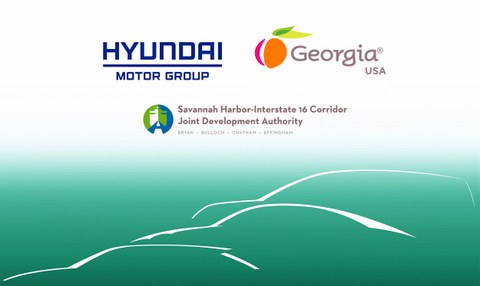
The Hyundai Motor Group (HMG) is a worldwide leader in electrified vehicles through its Hyundai, Kia and Genesis brands. This includes battery electric vehicles (BEV); plug-in hybrid electric vehicles (PHEV); hybrid electric vehicles (HEV) and hydrogen fuel cell electric vehicles (FCEV).
To continue this growth they have set a worldwide EV target to introduce by 2030 at least 11 new electric models, accounting for 3.23 million vehicle sales. These goals all begin with an investment in technology and research, facilities, people, and product.
Financial Commitment
HMG will invest $16.2 billion globally to meet these electrification goals. As part of this, the group announced in May 2022 an all-new dedicated EV plant and battery manufacturing facility will be built in the U.S. in Bryan County, Georgia. Coastal Georgia was selected because of its close proximity to the Port of Savannah with excellent highway and rail transportation.
The $5.54 billion investment, with an additional $1 billion added by suppliers, will result in, by 2025, the production of up to 300,000 units annually. The vehicles to be built at this plant have not been announced (all will be for the U.S. market), but could be a mix of current and all-new coming Hyundai/Kia/Genesis electric vehicles.
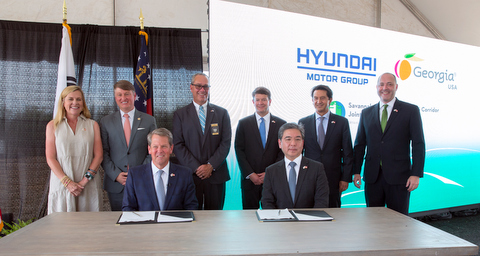
Environmental and Sustainability Goals
Hyundai has set out on a road to “net zero emissions and 100-percent electrification” with its North Star as “Progress for Humanity.” Hyundai has said, because of the new facility, it will be “a leader in the U.S. auto market’s EV transition.” In real numbers, this means Hyundai Group plans on selling 1.87 million fully electric vehicles in the U.S. by 2030, and being one of the top three EV providers in the U.S by 2026. As CEO Jaehoon Chang has said, “Hyundai is trying to be faster than anyone else.”
The new plant will be data-driven, using advanced intelligent manufacturing technologies utilizing AI, where robots assist human workers. Sustainability will begin with the plant relying on renewable energy for its power source, using emission-reduction technologies to meet the RE100 requirements.
RE100 is a climate group where its members have made the commitment to use 100-percent renewable electricity by a certain date. Accountability is crucial. The group has established guidelines on where members can source their power, and established public transparency in the reporting of progress. Hyundai setting this goal with its new facility is impressive and should be emulated by all automobile companies worldwide.
The 2022 Hyundai Group Electrified Vehicle Line-up
In the U.S., the Hyundai Group sells electrified vehicles with and without a plug. This mix comprises 15-percent of its total sales, which outpaces the 11.9-percent of the industry average from all auto manufacturers, and places HMG #2 in BEV sales in the U.S. behind Tesla. Here is the line-up, with news/review links on Clean Fleet Report.
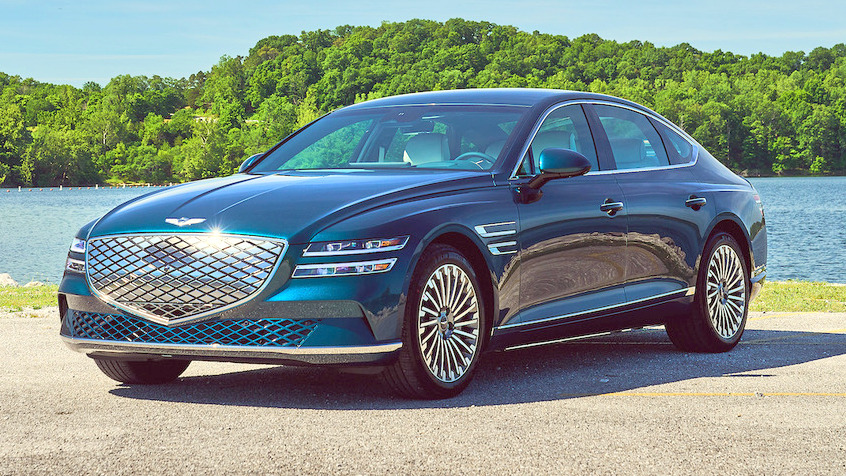
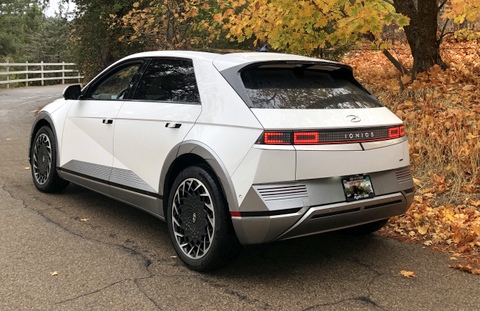
BEV (Battery Electric Vehicles)
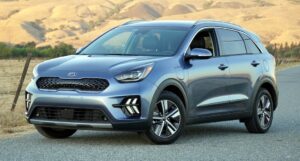
PHEV (Plug-in Hybrid Electric Vehicles)
Hyundai Santa Fe
Hyundai Tucson
HEV (Hybrid Electric Vehicles)
Hyundai Santa Fe
Hyundai Tucson
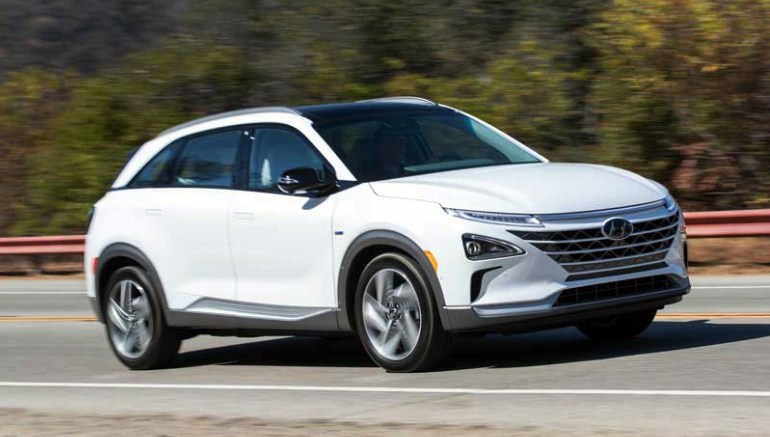
FCEV (Hydrogen Fuel Cell Electric Vehicles)
Make sure to opt-in to the Clean Fleet Report newsletter (top right of page) to be notified of all news stories and vehicle reviews.
Story by John Faulkner. Photos by John Faulkner, Hyundai & Clean Fleet Report archives.

7 thoughts on “News: Hyundai Lays Out An Electric Future”